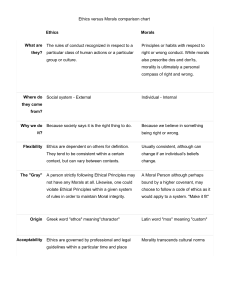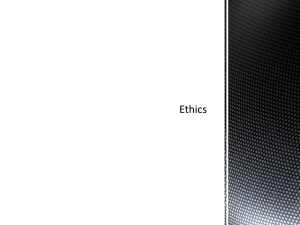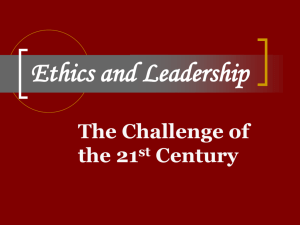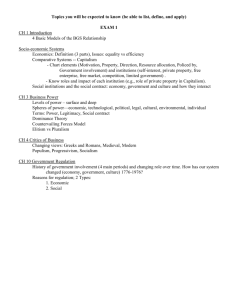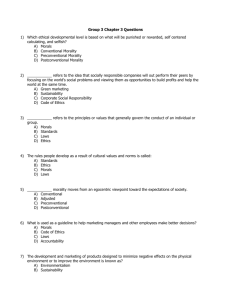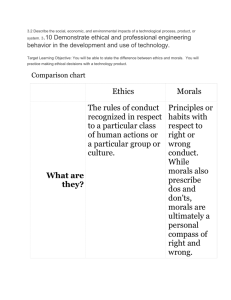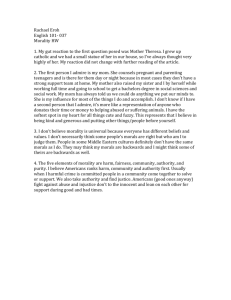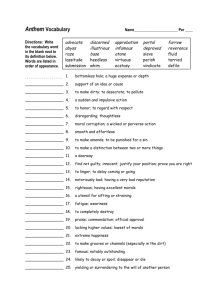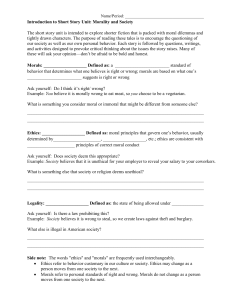Ethics vs. Morals: Understanding the Key Differences
advertisement
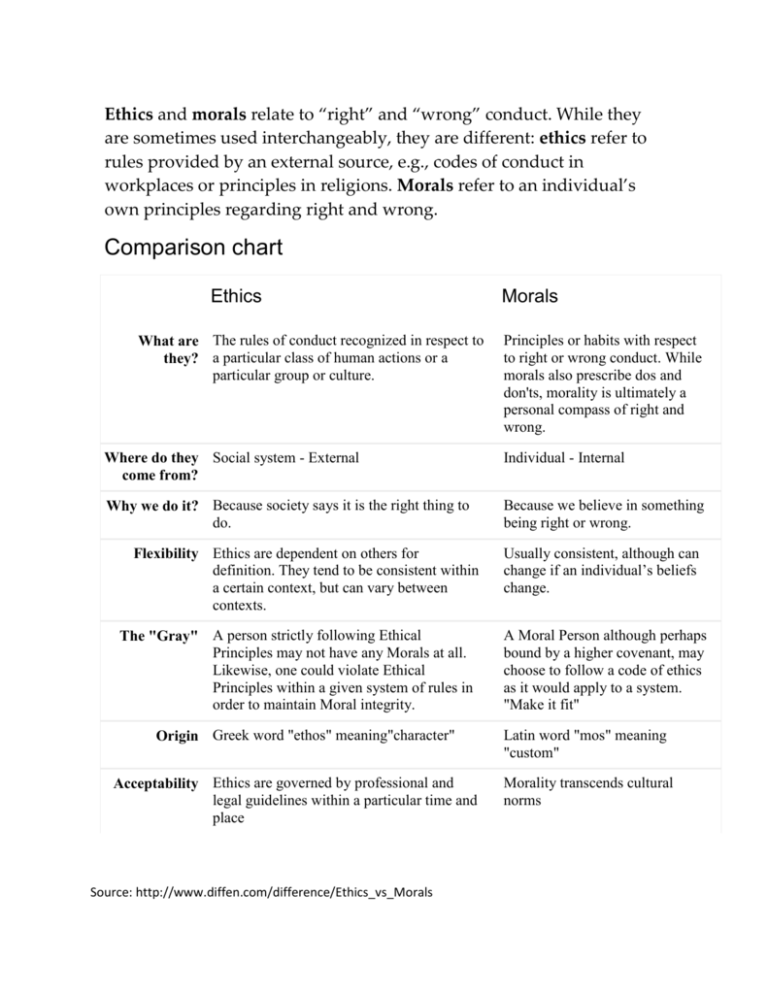
Ethics and morals relate to “right” and “wrong” conduct. While they are sometimes used interchangeably, they are different: ethics refer to rules provided by an external source, e.g., codes of conduct in workplaces or principles in religions. Morals refer to an individual’s own principles regarding right and wrong. Comparison chart Ethics What are The rules of conduct recognized in respect to they? a particular class of human actions or a particular group or culture. Morals Principles or habits with respect to right or wrong conduct. While morals also prescribe dos and don'ts, morality is ultimately a personal compass of right and wrong. Where do they Social system - External come from? Individual - Internal Why we do it? Because society says it is the right thing to do. Because we believe in something being right or wrong. Flexibility Ethics are dependent on others for definition. They tend to be consistent within a certain context, but can vary between contexts. The "Gray" A person strictly following Ethical Principles may not have any Morals at all. Likewise, one could violate Ethical Principles within a given system of rules in order to maintain Moral integrity. Origin Greek word "ethos" meaning"character" Acceptability Ethics are governed by professional and legal guidelines within a particular time and place Source: http://www.diffen.com/difference/Ethics_vs_Morals Usually consistent, although can change if an individual’s beliefs change. A Moral Person although perhaps bound by a higher covenant, may choose to follow a code of ethics as it would apply to a system. "Make it fit" Latin word "mos" meaning "custom" Morality transcends cultural norms
